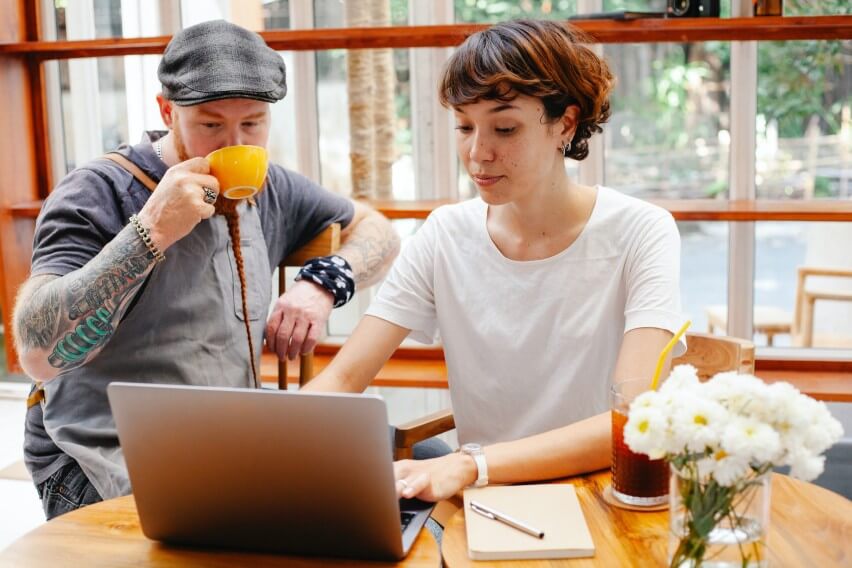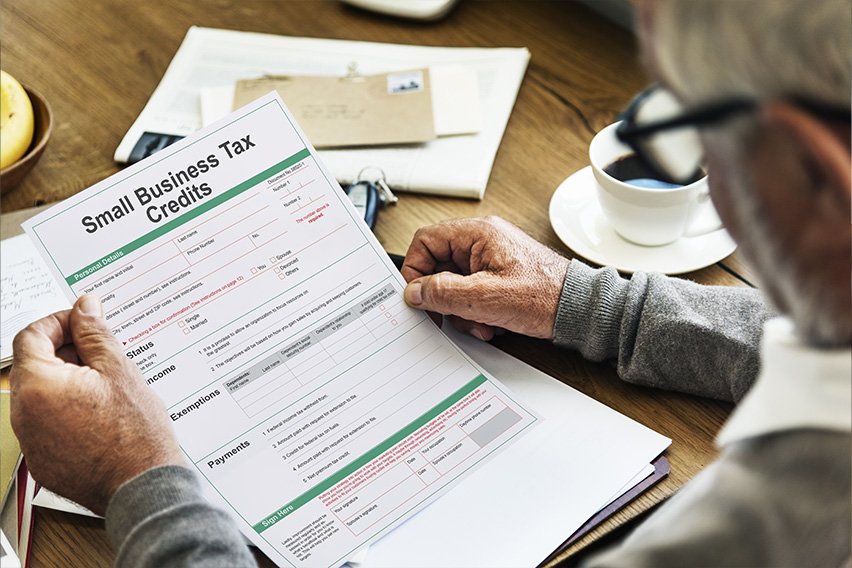How Much Can You Earn From a Hobby Before Paying Tax?

What may have started out as a pastime or leisure activity can turn into a business: even if that’s not what you originally intended. As a result, there could be tax implications for you due to the income that the Australian Taxation Office (ATO) will need you to declare.
If you’re selling goods or services, it’s therefore important to regularly weigh up where you stand on the “hobby” vs “business” scale. Read on to find out how to do this.
Table of Contents
- What Is Considered a Hobby Business?
- The Tax Implications for a Hobby and a Business
- How Long Can You Run a Business at a Loss?
- Do I Have to Pay Taxes on a Hobby Business?
- When Is a Hobby Considered a Business?
- Key Takeaways
- Frequently Asked Questions
What Is Considered a Hobby Business?
If you are selling products that you create, what’s going to matter most is whether your intention is to make a profit. A hobby can become a business when it is more than simply a pastime or leisure activity from which you get personal enjoyment.
Understanding how much you can earn from a hobby before paying tax means assessing if there’s an intention to profit at some point in the future.
You may, for example, move on to selling your work for more than the cost of the materials you use. You then might also advertise your services because you want to spend more than just a little of your spare time on your hobby.
It’s at those points that the lines become less blurred. This is when what began as a hobby might turn into something more than recouping a few extra dollars spent on materials. To start with, there’ll be business records to keep and reporting obligations to adhere to.

Tax Implications for a Hobby and a Business
For tax purposes, running a business is far more complex. That’s when compared to having a leisure-time hobby that may occasionally involve the sale of goods or services.
If you have a business, it is likely that you intend to make a profit, even if you believe that may take some time. You may intend to repeat certain activities or take online payments. You may have also set in motion certain formalities that include:
- Registering a business name
- Getting an Australian Business Number (ABN)
- Keeping business records and having a separate business bank account
To help you focus on some of the key differences between hobbies and businesses for tax purposes, we have compiled the following table:
| HOBBY | BUSINESS | |
| Declaring Payments | There’s no obligation to declare what you make from your hobby to the ATO. | You will have to declare your income to the ATO in your yearly tax return. |
| Claiming Tax Deductions | You won’t be able to claim a deduction for any losses made in your creative work when it is a hobby. | You’re able to claim deductions on your expenses. You would normally need an ABN in order to do this. |
| Keeping Records | It’s not necessary to keep records of your hobby for ATO purposes. It is, however, wise to keep detailed notes in case your circumstances change. | You have to keep business records for tax and other purposes. |
| Licenses and Permits | You wouldn’t normally have to hold licenses and permits for a pastime or leisure activity. | Licenses and permits specific to your kind of business may be necessary. |
| Australian Business Number (ABN) Eligibility | You will not be eligible for an ABN for a hobby. But, should you sell services or goods to businesses, they might ask you to provide one when they pay you. Instead of an ABN, you can use a “statement of supplier” form. This will be enough to stop the business from withholding any money from the payment to you for not having an ABN. This statement acts as a way to inform the business that you’re selling services or goods as a hobby. | Although it is not mandatory for businesses to register for an ABN, obtaining one is free. It makes running a business far simpler, especially if you have to register for other taxes such as GST. If you don’t have an ABN, other businesses will have to withhold 47 per cent from any payments they make to you for tax purposes. |
| Selling Goods | However you sell goods, you will have to comply with Australian Consumer Law (ACL). Your clients have an entitlement to automatic rights. These kick in should they purchase a product that breaks easily, fails to work properly or doesn’t perform as one would expect. | |
How Long Can You Run a Business at a Loss?
Should your business make a tax loss in a particular year, you can typically carry over that loss and claim a deduction in a future year. It’s possible to carry on running a business at a loss ad infinitum.
However, you may find you are at the mercy of investors or lenders who could withdraw financial support. If they did so, it might make the business unviable.
The rules around record keeping will still apply for business losses. You must keep records for 5 years for most transactions. But, if you deduct a tax loss in a sole income year, you would only have to keep records for 4 years from the specific income year.
Do I Have to Pay Taxes on a Hobby Business?
If your hobby turns into a business then you will have to pay taxes. With that comes certain obligations. These include keeping business records and managing expenses for tax purposes. If you’ve never run a business before this can feel overwhelmingly complex.
However, there is a solution that makes record-keeping much simpler and more straightforward than you might think. You can use FreshBooks accounting software to manage all your business expenses and accounting needs.
You can start recording your expenses with FreshBooks by following a few easy steps. Functions provided by FreshBooks that will keep you compliant with the ATO include:
- Creating expenses as well as recurring expenses that can generate automatically
- The facility to upload receipts
- Marking an expense up for rebilling to your customers
Check here for more details.
When Is a Hobby Considered a Business?
A hobby becomes a business in the eyes of the ATO when a string of factors add up to imply that it is no longer simply a pastime or leisure activity.
The most obvious component of a business is the intention to make a profit. This would be from whatever goods or services you are creating or selling.
Having a registered business name and a business plan are both potential elements of a business. In the same way, obtaining an ABN or using business premises are typical business practices.
As a hobby, what matters is that the main intention of selling goods and services involves simply recouping costs. If so, then the hobby would not be considered a business.

Key Takeaways
It’s understandable that the line between a hobby and a business might appear blurred at times. Seek professional advice if you are unsure, especially if you sell goods and services.
If you fail to understand the differences, you might create problems for yourself, even inadvertently. These include compliance issues in terms of taxes due to the ATO and other obligations. Don’t put yourself at risk of hefty fines.
Hobbies are pleasurable activities. You would typically undertake them without the intention of making a profit, even in the longer term. You might still sell a painting or a gift you’ve made, however, only in return for the cost of any materials.
A business, on the other hand, tends to set out with the aim of making a profit even if that’s likely to be in the distant future. How much can you earn from a hobby before paying tax? It depends on whether your hobby has transformed into a business.
FAQs on Tax Deductions for Hobbies and Businesses
Do I Need to Declare Hobby Income to the ATO?
You will only have to declare this kind of income under certain circumstances. These are typically when your hobby becomes a business rather than an ordinary pastime or leisure activity.
Does Selling Personal Items Count as Income?
The proceeds of selling personal items become taxable income under specific circumstances. A key dependency is whether you intend to make a profit. Another includes regularly repeating similar kinds of sales. Also relevant is the use of formalities such as a registered business name.
Do I Need to Register My Hobby as a Business?
You would only need to register a hobby as a business if it actually becomes a business for tax purposes.
What’s the Difference Between a Hobby and a Business?
A hobby is a leisure activity or pastime carried out in your spare time, usually with the single aim of personal enjoyment. It is possible to sell goods or services as a hobby provided your intention is only to recoup the cost of any materials you use. A business will typically set out to make a profit from sales and services that get regularly repeated.
RELATED ARTICLES

 Crowdfunding for Business: 12 Best Crowdfunding Sites for Startups
Crowdfunding for Business: 12 Best Crowdfunding Sites for Startups Legal Requirements for Business: 10 Major Requirements to Begin
Legal Requirements for Business: 10 Major Requirements to Begin 6 Steps for Estimating a Painting Job in Australia
6 Steps for Estimating a Painting Job in Australia How Much Does a Small Business Pay in Taxes?
How Much Does a Small Business Pay in Taxes? Nanny Tax Deduction: A Complete Guide
Nanny Tax Deduction: A Complete Guide